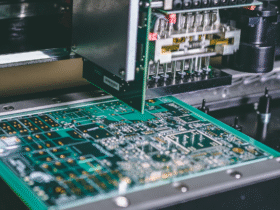Heat pumps are essential for maintaining a comfortable indoor environment all year round, offering both heating and cooling capabilities. In this comprehensive handbook, we’ll dive into everything you need to know about heat pumps, from how they work to installation tips and maintenance advice.Heat pumps are innovative systems that efficiently transfer heat from one area to another, providing warmth during cold months and cooling during hot months. Unlike traditional heating systems that generate heat, heat pump simply move heat from one place to another, making them energy-efficient and environmentally friendly.
Understanding How Heat Pumps Work
Heat pumps work by utilizing refrigerant to absorb heat from a source (air, ground, or water) and transferring it to another location. In heating mode, the heat pump extracts heat from the outside air, ground, or water and releases it indoors. In cooling mode, the process is reversed, with heat being removed from indoors and expelled outside.
Types of Heat Pumps
Air Source Heat Pumps
Air source heat pumps are the most common type and extract heat from the outdoor air. They are suitable for most climates and are relatively easy to install and maintain.
Ground Source Heat Pumps
Ground source heat pumps, also known as geothermal heat pump, extract heat from the ground through buried loops of pipe. They are highly efficient but require more extensive installation and can be more expensive upfront.
Water Source Heat Pumps
Water source heat pumps extract heat from a water source, such as a lake or pond. They are less common in residential settings but can be highly efficient where suitable water sources are available.
Benefits of Using Heat Pumps

- Energy Efficiency: Heat pumps use electricity to move heat rather than generate it, resulting in lower energy consumption and reduced utility bills.
- Versatility: Heat pumps provide both heating and cooling, eliminating the need for separate heating and cooling systems.
- Environmental Friendliness: Heat pumps produce fewer greenhouse gas emissions than traditional heating systems, contributing to a cleaner environment.
Choosing the Right Heat Pump
Choosing the right heat pump involves considering factors such as the size and layout of your home, climate conditions, and budget. It’s essential to work with a qualified HVAC professional who can assess your needs and recommend the most suitable heat pump for your home.
Installation Process
The installation of a heat pump requires careful planning and execution to ensure optimal performance. A professional installer will conduct a site assessment, determine the best location for the indoor and outdoor units, and complete the installation according to manufacturer specifications.
Maintenance and Care
Regular maintenance is key to prolonging the lifespan of your heat pump and maximizing its efficiency. This includes cleaning or replacing air filters, inspecting and lubricating moving parts, and scheduling annual servicing by a qualified technician.
Troubleshooting Common Issues
Common issues with heat pumps include reduced efficiency, strange noises, and airflow problems. If you encounter any issues, it’s essential to contact a professional technician for diagnosis and repair to prevent further damage.
Cost Considerations
The cost of purchasing and installing a heat pump varies depending on factors such as the size and type of heat pump, installation requirements, and any additional features. While heat pumps may have a higher upfront cost compared to traditional heating systems, the long-term energy savings can offset this initial investment.
Government Incentives
Many governments offer incentives, rebates, and tax credits for installing energy-efficient heating and cooling systems like heat pumps. These incentives can help offset the cost of installation and make heat pumps more affordable for homeowners.
Environmental Impact
By reducing reliance on fossil fuels and lowering energy consumption, heat pumps play a crucial role in reducing carbon emissions and combating climate change. Investing in a heat pump is not only beneficial for your home but also for the environment.
Conclusion
Heat pumps are a versatile and efficient heating and cooling solution for homes, offering comfort, savings, and environmental benefits. By understanding how heat pumps work, choosing the right system, and maintaining it properly, you can enjoy year-round comfort while reducing your carbon footprint. If you’re considering installing a heat pump, consult with a qualified HVAC professional to explore your options and ensure a successful installation.
Read Also:- air source heat pump
FAQs
What size heat pump do I need for my home?
-The size of the heat pump you need depends on factors such as the size of your home, insulation levels, climate, and personal preferences.
How often should I service my heat pump?
-It’s recommended to service your heat pump at least once a year to ensure it continues to operate efficiently and effectively.
Are heat pumps noisy?
-Heat pumps are designed to operate quietly, especially compared to traditional heating and cooling systems like furnaces or air conditioners.
Can I install a heat pump myself?
-While it’s possible to install a heat pump yourself, it’s not recommended unless you have the necessary knowledge, skills, and experience.
Are heat pumps suitable for all climates?
-Heat pumps are suitable for a wide range of climates, including temperate and mild climates.
Do heat pumps work in extreme temperatures?
-While heat pumps can operate in a wide range of temperatures, their efficiency may decrease in extreme cold or hot conditions.
How long does a heat pump last?
-The lifespan of a heat pump depends on factors such as usage, maintenance, and quality of installation.
Are there any health benefits to using a heat pump?
-Heat pumps provide consistent, even heating and cooling without the dryness often associated with traditional heating systems like furnaces.













Leave a Reply